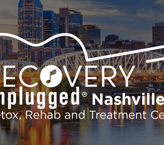Addiction In The Workplace
Alcohol And Drugs In The Workplace
Contrary to popular belief, most Americans struggling with a substance use disorder (SUD) continue to hold down a job. According to the National Council on Alcoholism and Drug Dependence (NCADD), more than 70% of those abusing illicit drugs in America are employed; most binge drinkers have jobs as well. The most common illicit drugs abused on the job are Marijuana and Cocaine.
Drug abuse and addiction cost American companies $81 billion every year.
Per US Drug Test Centers, which is supported by SAMSHA, researchers estimate the $81 billion spent annually on drug abuse in the workplace covers the costs of:
- Absenteeism
- Accidents
- Healthcare
- Lost productivity
Online Addiction Counseling
Get professional help from an online addiction and mental health counselor from BetterHelp.
- Access to Therapy 24/7
- Easy Online Scheduling
- 20,000+ Licensed Therapists
Paid Advertising. We may receive advertising fees if you follow links to the BetterHelp site.
$25.5 billion of this sum is spent due to lost productivity and absenteeism at work because of drug abuse each year. Another $25 billion is lost due to healthcare costs annually. Additionally, an estimated 80% of drug users support their drug use by stealing from their place of work.
Some people who abuse drugs or alcohol might qualify as “high-functioning,” or able to reach personal and professional success despite substance abuse. High-functioning does not mean healthy. Substance abuse and addiction cause damage in workplaces across the country.
Workplace Drug Abuse Effects
Substance abuse in the workplace can lead to decreased productivity and increased physical injuries and fatalities.
Approximately 16% of emergency room patients injured at work have alcohol in their system.
The likelihood for workplace accidents skyrockets when employees are under the influence. Drinking on the job can also lead to aggravated assault and sexual battery charges.
Other side effects of addiction and drug abuse at work can include:
- Withdrawal symptoms affecting job performance
- Inability to focus or concentrate while under the influence
- Needless risk-taking affecting company
- Illegal sales of drugs to coworkers and other illicit activities
Those who abuse drugs are not the only ones affected in the workplace. Friends, family members, and coworkers report mental stress at work as well.
Over 26% of employed adults have substance abuse or addiction in their family. Over 42% of these employees felt their productivity suffer as a result.
Signs Of Workplace Drug Abuse And Addiction
Most addiction sufferers hide their drug use from employers and coworkers, but there are some signs that suggest a problem. Someone abusing drugs at work might behave differently from their colleagues in crucial ways. They may avoid coworkers and friends or irrationally blame them for personal mistakes. Other indicators someone is abusing drugs in the workplace may include:
- Openly talking about money problems
- A decline in personal appearance or hygiene
- Complaints of failing relationships at home
- Taking time off for vague illnesses or family problems
The first step toward recovery is recognizing telltale signs of addiction.
Looking for a place to start?
Join the thousands of people that have called a treatment provider for rehab information.
Free and confidential
Available 24/7
Access to professional treatment
Workplace Drug Abuse And Addiction Treatment
Employed adults might be reluctant to take time off from work for an inpatient treatment program, but there are many options in battling a drug or alcohol addiction. Outpatient programs can help professionals recover while retaining some normalcy at work.
Common Questions About Rehab
Many businesses also enroll in the Employee Assistance Program (EAP), a national initiative of the NCADD. The EAP can point addiction sufferers and their loved ones toward community resources for emotional support and treatment. Twelve-step groups like Alcoholics Anonymous and Narcotics Anonymous can also provide accountability during recovery.
Explore These Featured Treatment Centers

Whatever treatment method you choose, getting well again is possible with proper assistance. Speak with a treatment provider who can help you to explore your treatment options.
Published:
Author
Jeffrey Juergens

-
Jeffrey Juergens earned his Bachelor’s and Juris Doctor from the University of Florida. Jeffrey’s desire to help others led him to focus on economic and social development and policy making. After graduation, he decided to pursue his passion of writing and editing. Jeffrey’s mission is to educate and inform the public on addiction issues and help those in need of treatment find the best option for them.
- More from Jeffrey Juergens
Reviewed by Certified Addiction Professional:
Theresa Parisi

Theresa Parisi is a Certified Addiction Professional (CAP), Certified Behavioral Health Case Manager (CBHCM), and International Certified Alcohol and Drug Counselor (ICADC) with over 12 years of experience in the addiction treatment field.
- More from Theresa Parisi
Sources


Recovery Starts Today
Call Now For Addiction Support